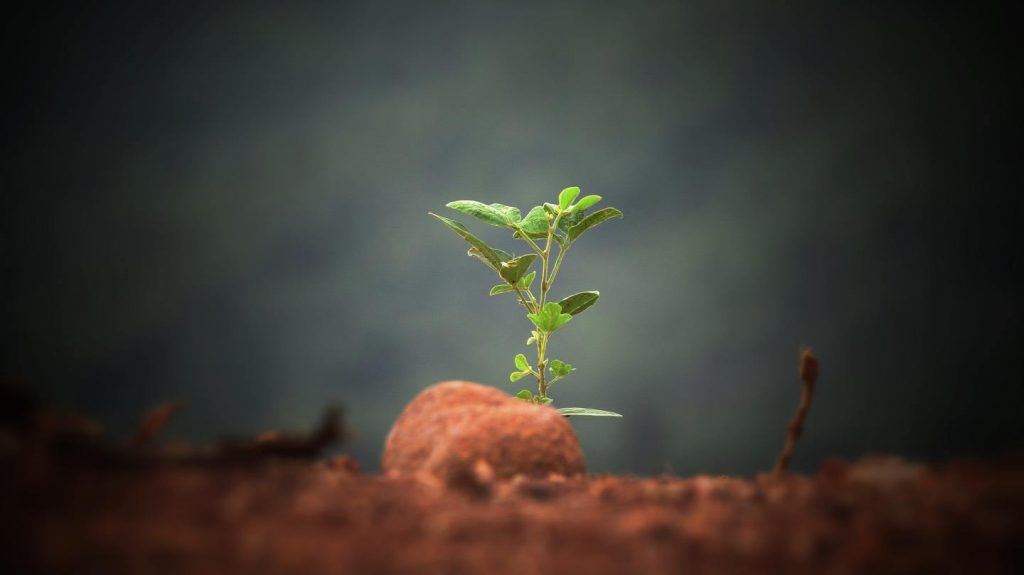
Jesus has told the crowd the parable of the sower, the parable of the weeds and the parable of the mustard seed. Now He shares the parable of the leaven: “He told them still another parable: “The kingdom of heaven is like yeast that a woman took and mixed into a large amount of flour until it worked all through the dough.””
A sprouting seed (the parable of the sower), a growing plant (the parables of the weeds and the mustard seed) and a leavening dough ball (the parable of the leaven) all have several qualities in common. They get bigger, and they make virtually no noise. They flash no lights, they send up no smoke. They are all quiet. So much so, that unless you were watching them over time you would not notice it at all.
Likewise, the kingdom of heaven spreads best when done quietly. Remember that it is a normal, natural and expected thing that a seed sprouts in good soil and that yeast spreads in dough. These things do not need inorganic chemicals or catalytic boosts of energy to get them going. They just happen.
Evangelism and mission are not meant to be big productions, nor are they meant to be exhausting work. All too often people are taught that to do the work of evangelism you need to be smarter or more educated that those you speak to, or that you need to wow your subject with some kind of song and dance. But we don’t pray for lost people by shouting it through a megaphone, and neither should we witness to people at the top of our lungs. Telling others about answers to prayer and sharing what God has done for lost and broken people is best done without fireworks and parades. The vast majority of people in the kingdom of heaven did not get there because someone shouted at them. Perhaps that works on occasion, but it is not the norm.
Rather, most enter the kingdom of heaven through a witness of Jesus who in a normal conversation or when they read God’s Word, proclaimed through silent print. So too the sharing of Christ from one individual to another is usually a pretty quiet activity. It is something normally done one on one, or one to a small group at a time. In this respect it demands no professional accreditation and no means of amplification.
When you pray for the lost around you, you must know that God is keenly interested in answering that prayer. In fact, He is as interested in answering that prayer as He is in seeing that seeds sprout (and they do when they are planted), that plants grow (and they do) or yeast multiplies (and it does). In other words, God has ordained that it should happen. So when we pray for the lost, we must expect that God orchestrates circumstance to bring about a natural opportunity for us to bear witness of Him. That witness might be as unassuming as a kind gesture, a small help or a polite conversation. How it comes to pass we do not exactly know, but we do know that God will make a way for the Good News to be shared just as He makes a way for the plant to break out of the seed and the yeast to multiply.
We don’t need to force that, and we don’t even really need to train for it per se. We just need to cooperate with Him in it (that’s our soil – own walk with Him), seek Him for it (that’s prayer and faithfulness in sowing) and be ready for when it does happen (that’s bearing witness and reaping).
Paul […] says that ‘the kingdom of God is not concerned with material things like food and drink, but with goodness and peace and joy in the Holy Spirit’ (Roma.ns 14:17), thereby linking it inseparably with moral choices and personal spirituality.
John Drane
APPLICATION: Thankfulness
God uses all of us as we pray and act in faith. It is our faith mixed with intentionality and perseverance that grows the kingdom of God, not academic degrees or the size of our pulpit.

